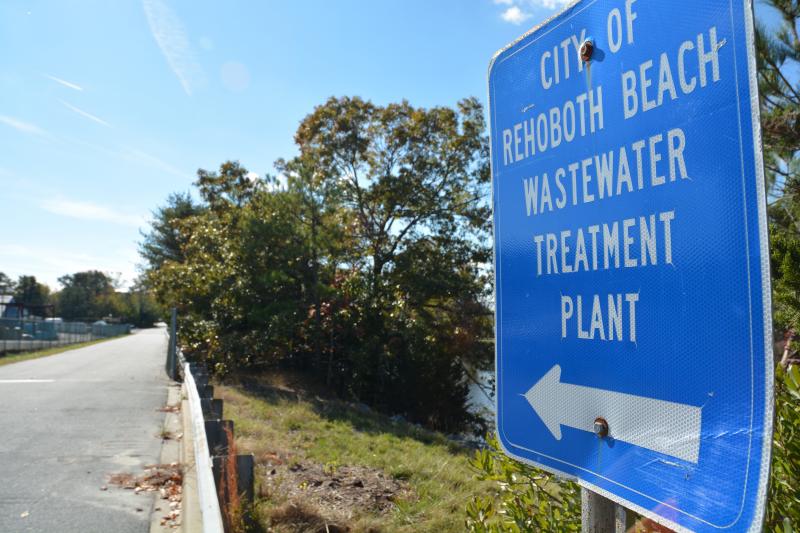County makes pitch on tapping into Rehoboth outfall
Sussex County will be spending tens of millions of dollars on wastewater infrastructure upgrades over the coming years. The question, said County Administrator Todd Lawson, is if some of that money is going to be spent at the Rehoboth Beach wastewater treatment plant.
Roughly three weeks ago, Rehoboth Beach officials announced the county had approached them about tapping into the city’s ocean outfall. Specifically, the county’s proposal is a one-time payment of $7.6 million to the city for permission to connect a 12-inch-diameter pipe to the city’s ocean outfall pipe, allowing up to 2 million gallons of treated effluent flow per day from its Wolfe Neck Regional Wastewater Facility.
The city conducted a special meeting Nov. 15 to hear from county officials on their proposal. Lawson was at the meeting. He was joined by County Engineer Hans Medlarz and County Finance Director Gina Jennings.
The wastewater treatment relationship between the city and the county is nothing new, said Lawson. The original agreement dates to 1983, the current one was signed in 2017 and, more recently, he said, the county has helped finance a number of multimillion-dollar upgrades that are currently taking place.
Lawson said the county has $44 million budgeted over the next four years for improvements to its wastewater treatment facilities and is expecting a decision from the state in early 2022 on the permits that would allow for the county to move forward on those improvements. County officials are looking for more flexibility and need to know if they should spend millions of dollars on infrastructure upgrades to their facilities or the city’s, he said.
“The county is at a crossroads,” said Lawson.
On hand to talk about connection details, Medlarz said the proposed connection wouldn’t just benefit the county. It would give the city flexibility if there were an emergency, because the flow at the connection point could be reversed and the county would have the ability to store days’ worth of wastewater while the city resolved its issue.
Jeff Sturdevant, a representative from the city’s consultant GHD, said in his experience, proposals should be considered whenever there’s an opportunity for a wastewater treatment system to be more flexible.
The city’s permit allowing discharge from the outfall, which expires in about seven months, has a note about monitoring nutrients, but does not include a limit on the amount of nutrients.
Medlarz said the county would rescind its offer if a new permit includes nutrient limits, because the county’s facility features a land application system which does not require nutrient removal. If there was a nutrient-removal requirement, it would cost the county too much to meet those requirements, he said.
Medlarz said the county doesn’t expect a need for any additional upgrades to the outfall pumps, pipe or diffusers. However, he said, the county will pay for the upgrades if necessary.
If the city decides to move forward, Medlarz said the county’s suggestion is for the city to pursue renewal of its own permit separate from the county’s proposed permit. Ultimately, he said, the two entities would share a connection point, with permit compliance taking place at the treatment facilities before the shared effluent comes out of the outfall.
Medlarz said the county has had a similar connect-point agreement with Selbyville at the county’s South Coastal facility outfall for more than 30 years.
Medlarz said construction of the connection is the easy part. If the city agrees to move forward on this proposal, it’s going to be a three- to four-year process to get permit approval, he said.
As for the financial aspect, Jennings explained how the county came up with the $7.6 million offer. She said the entire outfall cost $38.5 million and has a minimum capacity of 10.1 million gallons a day, which means the unit cost is $3.8 million per 1 million daily gallons. The county is asking for 2 million gallons a day, so the amount reflects doubling the unit cost, she said.
There is no specific timeline for the city moving forward, and it’s unknown when the county’s offer will be discussed again. Commissioners will hold a regular monthly meeting Friday, Nov. 19, and the subject is not an agenda item. County officials said they would like to have a response sometime in the first quarter of 2022. Lawson said final terms of the agreement will require approval from county council.


















































